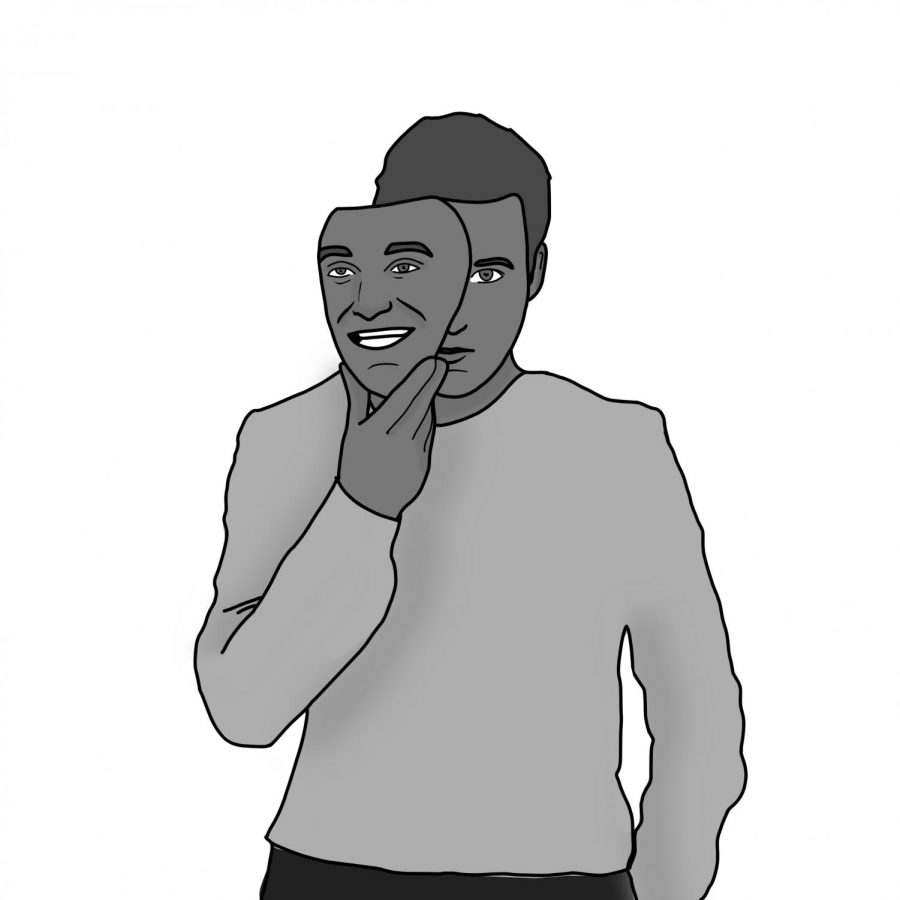It is not uncommon, especially among college students, to feel like they are unworthy or subpar – like they are an imposter. This type of mindset can be isolating, but the reality is there are many students experiencing this same exact feeling.
It is known as the imposter syndrome.
Imposter syndrome is when people doubt their intelligence and competency, and they fear they will be exposed as a fraud. People attribute their success to luck instead of their own capabilities and merits.
First-year, first-generation, graduate and minority students are particularly prone to this given the new or heightened pressures placed on them to succeed. But anyone can feel this way at any point in time.
Imposter syndrome can negatively impact a student’s academic performance, social life and overall well-being.
Feelings of inadequacy may get in the way of a student reaching their full potential. The lack of confidence and self-assurance can hold a student back from pursuing opportunities presented to them and pursuing them to the best of their abilities.
When a student believes they are not smart enough to be in a class or at the university they are enrolled in, it can lead to indifference towards their studies. Students may begin to procrastinate on assignments and not put forth their best work. They believe it would not be satisfactory anyways, even if they did try their hardest.
There is a mindset to achieve not failing, instead of achieving success.
Even when someone with imposter syndrome recognizes their success, they often will attribute it to having outside support or the task being simple to complete. They will shy away from compliments because they do not accept them as true.
People with imposter syndrome overlook any sort of positive feedback and usually fixate on the negative. They view bad grades or constructive criticism as something that defines them. And, that these are signs that indicate they aren’t good enough and don’t belong.
Most students with imposter syndrome will downplay their self-doubt to others and won’t express how they are truly feeling. They fear opening up will lead to confirmation of their negative thoughts. This silence furthers feelings of isolation and loneliness.
While it may seem like a good idea, seeking support from fellow classmates of the same major can actually increase feelings of inadequacy. This is because it enables students to continue comparing themselves to others. It can make them feel like they are lagging behind their peers.
Whereas, students who turned to friends and family felt an alleviation as they were able to better grasp a holistic image of themselves — rather than focusing on a certain area where they only saw flaws in themselves. It is likely they too are feeling or have felt the same way. Confiding in each other than help one realize their self-perception is misguided.
To cope with imposter syndrome, there has to be a major switch in mindset.
In times of change or transition, people are especially susceptible to imposter syndrome. If you notice you are having thoughts of self-doubt, think about why that may be. Identifying the cause of these thoughts can help you address them.
Most people will experience imposter syndrome at some point in their life. Recognize that you are not alone in this mental struggle. Talking openly with others can create self-assurance and help remind you of your self-worth.
When mistakes are made, they should be taken as learning opportunities that can be used to make ourselves better. The same goes for constructive feedback. They are not indicators of inadequacy.
We must remember that everyone is on their own journey and their own timeline. Comparing ourselves to others and scrutinizing every little thing we do is not helping us get better — it only makes us feel worse. We all have flaws and we all make mistakes. And that’s okay because it means we can only get better.
Meeting goals and getting rewarded for our achievements should be celebrated. Don’t undermine yourself — chose to appreciate your talents and efforts.
Catherine Van Weele is a sophomore studying political science. Follow her on Twitter @catievanweele.








